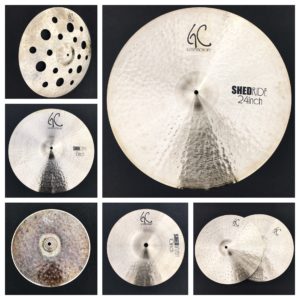The Rich History of Gospel Music in Africa

For any music enthusiasts, the rich history of gospel music is a fascinating experience. While many people think about gospel music coming from the American south, Africa has its own unique story of African gospel music’s origins and development.
Early Start to Nigerian Gospel Music
Christian music, in general, was introduced in Nigeria in the 16th century. It was brought to the country by Portuguese Catholic missionaries. They traveled to Benin and Warri and brought a type of liturgical music. However, this music often had minimal tunes and was a stoic type of music.
As the African continent began to receive more missionaries, churches were formed around the country. Some countries such as Nigeria saw a greater rise in Christianity than other African countries. However, most African nations saw the development of Christianity in their area.
During the early centuries of Christianity in Africa, the local people were not willing to give up their own traditions and styles for more westernized worship. They brought their own rhythms and tunes to the worship. This is the origin of the movement.
Greater Exposure to Music
Although the music was fairly limited at the time, the Church Missionary Society began working in Africa. They introduced the choral music of the Anglican church. Until this time, most of the music in churches was sung by one person or a choir. It did not involve the entire congregation. This style was hugely popular.
Early Influencers
The pioneer of this style of music was Reverend Ransome-Kuti. He began to experiment fusing choral music with the Yoguba language. He composed choral pieces that embodied the language and style of the people. His work was so well-received worldwide that he was invited to England in 1922 to record an album of his compositions.
Another important figure was composer Ikoli Harcourt-Whyte who composed Nigerian gospel worship songs. He was the first person to compose music in the Igbo language and his compositions were over 200. While he did not receive the same fame as the reverend, his music has been recorded today. It remains popular in the African church.
In the 1970s and 80s, changes in the overall music scene also played a role in African gospel music and artists. Johnny Cash, Jim Reeves, and similar singers brought new rhythms and influence to these musicians. One of the groups that revolutionized this area was the Karis Band. This was also a time when the Pentecostal movement was sweeping the world. A similar group was two brothers from Africa, Lazarus, and Emmanuel whose album involved a variety of collaboration and met with great reception.

International Acclaim
Although some of these early artists were recognized around the world, it was not until the 2000s and the rise of the internet that these artists became well-known in other countries. The development of YouTube meant that these artists could share their music internationally. This was a huge change that allowed the world to experience African gospel music.
Some of the notable artists that have emerged have included Ty Bello, Nikki Laoye, Lanre Teriba, and Onyedikachi Umeh. You’ll find these artists touring around the world or you can view their music from the comfort of your own home. Their music has seen millions of views on YouTube as well as significant downloads.
Meeting the Needs of the Time
Although it would be easy to see African gospel music as emerging just like any other type of music genre, it has a unique history and development. Gospel music in Africa emerged from obscure renaissance period times. In the 20th century, it acquired a unique character. It was simply an imitation of American gospel music as some music critics have assumed. It instead became this indigenous hybrid style that was driven by the needs of its audience. From its humble origins came a substantial music industry that employs thousands of artists today.
Fans of African gospel music need to look no further than YouTube to review the broad range of musical styles and ranges that they have. The expansion of the evangelical movement in African points to gospel music as being a pillar in the music industry. It’s likely that over time, this music style will continue to change and adapt to the needs of the African people.




Good morning sir/ma, my name is perpetual, i enjoy reading this article and i could love to know more about the history of gospel in Africa..